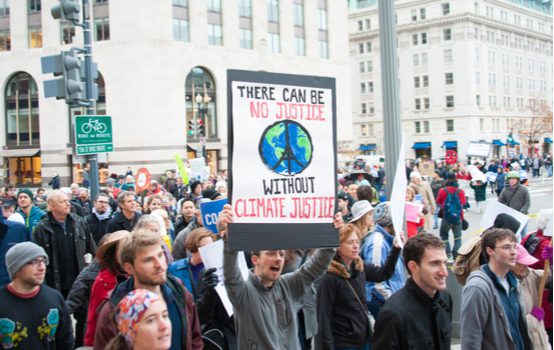Does the Paris Agreement Matter?

In the wake of the Trump administration’s decision to exit the Paris climate accord, many on the left seem to be writing an obituary for the planet. “Trump to Planet: Drop Dead,” wrote CNN. And the Huffington Post. And the New York Daily News. USA Today, by contrast, went with the more nuanced: “President Trump to Planet Earth: Drop Dead.”
Yet anyone who was relying on the Paris agreement to save the world was bound to be disappointed sooner or later. A hint of this could be seen in the other dominant theme among critics—that withdrawing was stupid, since the agreement didn’t actually require America to do anything.
It’s true. Not only is participation in the Paris accord voluntary, but each country is charged with setting its own emissions-reduction goals, however stringently or laxly they wish. Should a country later change its mind or simply not meet its own goals, there is no penalty. Unsurprisingly, even if every country meets their Paris commitments, this will not reduce emissions enough to avoid what scientists predict to be dangerous levels of warming over the coming century. And the results of past agreements suggest that many countries won’t meet their own goals anyway.
Why is the Paris agreement so weak? Because it has to be. An agreement that imposed severe and binding emissions reductions on member nations would find few takers. Just as St. Augustine famously prayed for God to “give me chastity, but not yet,” many nations are very much in favor of cutting their emissions, at some point in the future. And understandably so, given that the costs of reducing emissions are felt here and now, while the benefits will be felt only in the future and will be spread across the globe.
Even if a nation did sincerely agree to take costly action for the benefit of humanity, there is no guarantee that this commitment will last over the many decades necessary to make it effective. China started the 20th century as a nominal empire and ended it ruled by a pro-capitalist Communist Party, with a rollercoaster of changes in between. While one hopes that China’s 21st century will be less eventful, it’s simply not possible for the current government of China to credibly commit itself to actions decades away. And the same goes double for democratic nations. The very existence of President Donald Trump shows that politics can be unpredictable.
These are not problems with a specific international agreement. They are inherent to the nature of climate change. This is why James Hansen, one of the scientists most responsible for bringing attention to the issue of climate change, has described international agreements such as Paris as “just worthless words. There is no action, just promises.”
However, the fact that international agreements are unlikely to save the planet from climate catastrophe does not mean all is lost. Consider the seemingly unrelated case of cellular phones. In the course of only a couple of decades, cell phones have proliferated rapidly throughout the developed and developing world, to the point that there are now about as many cellphones as there are people. This didn’t happen because of an international agreement through which each nation pledged to promote cellphone use. It happened through the market.
Similarly, the United States has over the past decade reduced its greenhouse-gas emissions by more than almost any other country. It did this despite the fact that it had not joined the Kyoto Protocol, a previous international agreement meant to fight climate change. Instead of imposing costly measures to reduce emissions, the United States succeeded because of new technologies that were both cheaper and cleaner than existing sources.
This doesn’t mean there is no role for government in ensuring proper market incentives for energy. The R Street Institute (where I work) has long supported a revenue-neutral carbon tax, as well as funding for basic research to develop clean energy tech. But it does mean that the solutions to climate change are less likely to come from a global summit than they are from the next Bill Gates.
Josiah Neeley is energy policy director for the R Street Institute.